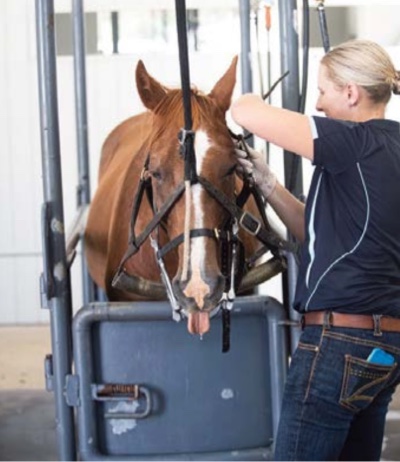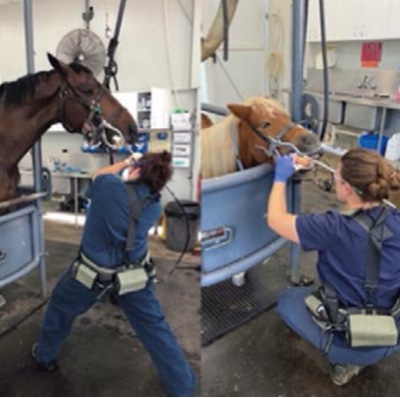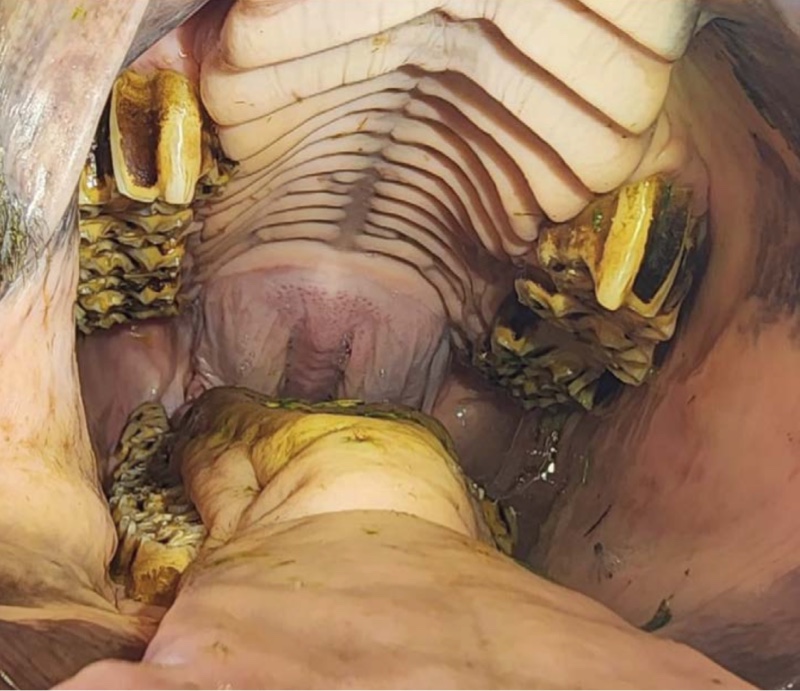Equine dental anatomy
The equine mouth has adapted as a result of the free-range trickle-feeding grazing habits of the horse. They prehend with their incisors at the front of the mouth, which grasp the feed, and the cheek teeth that line the sides of the mouth have roughened surfaces and grind the fibrous material before it is swallowed.
Horses have between 36 and 40 teeth. They have six upper and six lower incisors; then there is a gap (diastema) before the cheek teeth. Each arcade (left, right, upper and lower) has six teeth that are like bricks against each other with the roughened or ridged grinding surface – of these cheek teeth, 12 are premolars, and 12 are molars. The extras are wolf teeth and/or canines if they are present.
Some of the upper cheek teeth have their roots within the sinuses. The jaws are uneven, with the top jaw being about 30% wider than the lower jaw, with the chewing surface of the teeth being tilted at 12–15 degrees. This allows for the circular chewing action of the horse, which grinds the feed. Take a minute and watch how your horse chews when you hand them hay and see how it works!
Equine teeth are hypsodont (meaning high crown) and erupt continuously until they are worn down to the root. Teeth can last 20–30 years if looked after properly.
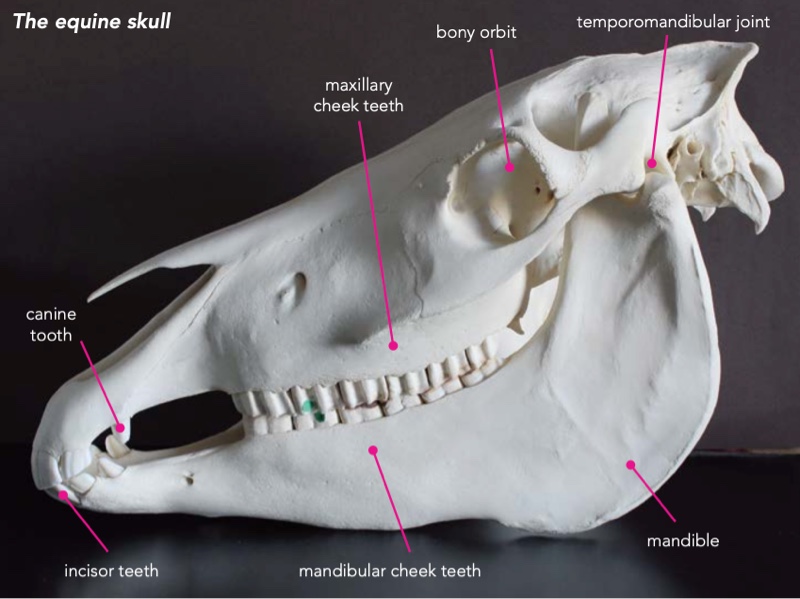
Why does my horse need regular dental examinations?
Because of the difference in the width of the jaws and the fact that the domesticated horse is not always continuously grazing, sharp points can develop on the sides of the teeth – if left without attention, then ulceration can occur on the inside of the cheeks. This can lead to pain in the mouth when eating and when being ridden. If they are not treated, then more serious dental issues can occur (e.g. periodontal disease, fractured teeth, malocclusions, tooth root abscesses sinus issues).
Dentistry is not just about teeth; dentistry is about total mouth care. Gum and periodontal disease is painful and is one of the most common conditions affecting mammals, including horses. Tumours, infections, feed impactions and foreign bodies are found regularly during proper dental examinations.
The aim of dentistry is to maximise comfort when eating or being ridden and to recognise issues before they become a serious problem. Regular and appropriate dentistry also prolongs tooth life.
What are the signs my horse has a dental issue?
Ridden Issues
- Head shaking/tossing
- Poor response to pressure on the reins
- Lugging to one side
- Head tilting
- Rearing
- Bucking
- Working behind the bit
- Poor or hard collection
- Refusal to maintain frame or vertical head carriage
- Refusal to take one lead or being slow in transitions
- Resistance to turning in one direction
- Pulling hard
- Refusing to accept bridling
- Getting the tongue over the bit or sticking the tongue out
- Slightly opening mouth
- Chewing the bit
- Tail swishing
Issues when eating
- Spilling feed
- Excessive salivation
- Quidding
- Slow eating
- Frequent washing of mouth in water
- Aggression or anxiety during eating
- Eating hay but leaving grain
- Faeces with large numbers of long fibres or undigested grains
- Weight loss
Why use an equine veterinary dentist?
Only a veterinarian has the medical, anatomical and physiological knowledge to diagnose and treat dental problems and to understand the effects that dental problems can have on the overall health of your horse. Veterinarians are the only people who can legally sedate your horse, provide adequate pain relief during potentially painful procedures (such as extraction) and to treat any concurrent medical conditions that may be affecting your horse. Veterinarians are able to assess the overall health of your horse before they are sedated or medicated to ensure that the medications given are the safest and most appropriate for your horse.
If your veterinarian doesn’t perform dentistry, there are plenty across Australia that do – these veterinarians have undergone further postgraduate training in dentistry and keep abreast of new developments. A veterinarian also understands the importance of biosecurity and is trained in how to prevent the spread of infectious diseases between horses and properties.
The aim of dentistry is to maximise comfort when eating or being ridden and to recognise issues before they become a serious problem.
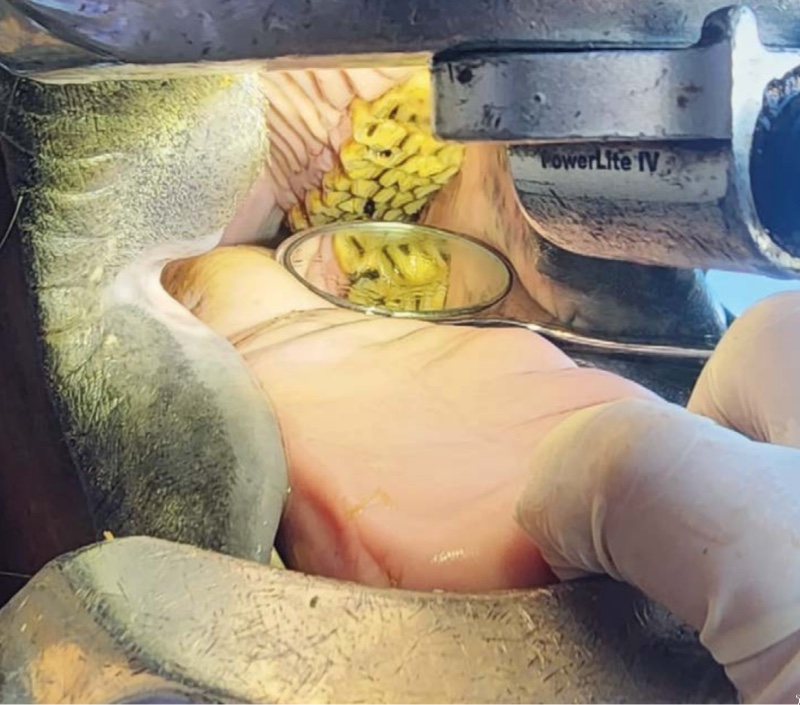
What happens during a dental examination?
